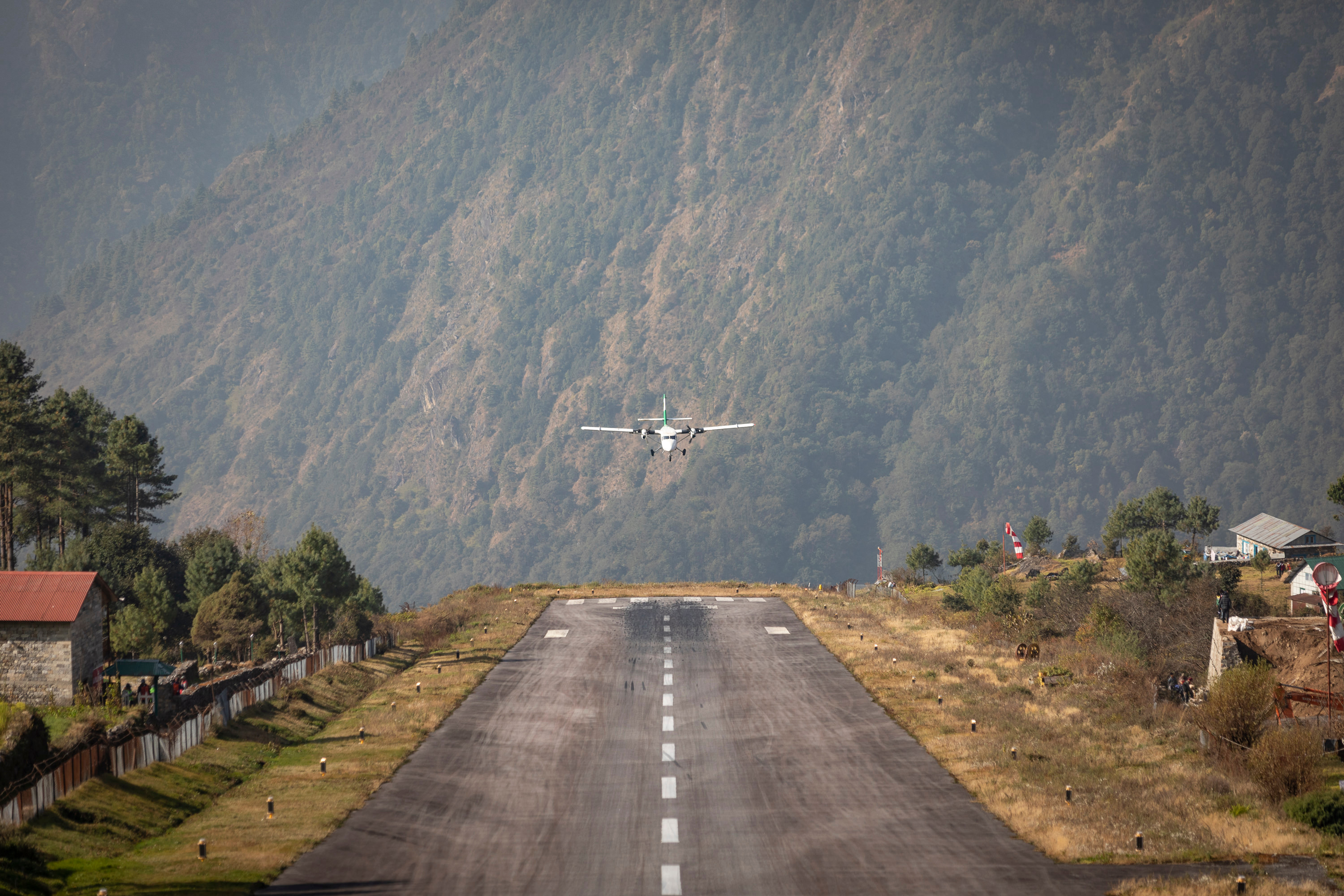
Image Credit
Adobe Stock
Flight disruptions after protest violence
Tribhuvan International Airport—the country’s primary gateway—was shuttered from Tuesday afternoon until Wednesday evening after anti-government demonstrations turned violent. Security forces opened fire on crowds protesting proposed social-media restrictions and alleged corruption on Sept. 8, killing 19 people. Rioters responded the following day by torching Parliament, Singh Durbar and several commercial hubs, causing property damage that local media valued in the billions of rupees. Flights resumed late Wednesday, but backlogs linger. Airline desks inside the single international terminal pulsed with anxious travelers clutching handwritten re-booking slips while departures boards flickered with “delayed” notices. Carriers are gradually clearing the queue, yet seat availability remains tight for the peak routes to Delhi, Doha and Dubai.Limited service means longer layovers
International carriers have added ad-hoc rotations to scoop up stranded passengers, though officials concede the schedule will not normalize for several days. Transit riders should brace for cascading delays because missed connections in regional hubs can force overnight stopovers. Travelers holding flexible tickets are advised to reconfirm onward segments at least 24 hours before travel.Free shuttles link hotels and airport
Rumors of fuel shortages and sporadic roadblocks sowed further confusion as visitors tried to reach the airport. To ease the bottleneck, the Nepal Tourism Board and several private tour operators launched a complimentary shuttle on Thursday. According to the board’s internal circular, three routes now operate between the airport and Kathmandu’s main hotel zones:- Route A: Tribhuvan International Airport – Thamel – Hotel Yak & Yeti – Shankar Hotel – Ambassador Hotel
- Route B: Tribhuvan International Airport – Marriott Kathmandu – Hyatt Regency – Dwarika’s Hotel
- Route C: Tribhuvan International Airport – Soaltee Hotel – Hotel Grand – Hilton Kathmandu*
*The Hilton property was severely damaged in recent arson attacks and remains closed, but the stop allows guests of nearby lodges to board.
Drivers report far more outbound passengers than new arrivals—an unmistakable sign that confidence is slipping among would-be trekkers and cultural tourists.Tour cancellations gather pace
Bookings for classic circuits such as the Annapurna Base Camp and Everest region are starting to evaporate. “If the situation doesn’t stabilize in a day or two, booking cancellations will accelerate,” Amatya said in a statement. His agency, Kora Tours, has already rerouted or postponed multiple itineraries to Dhulikhel, Pokhara and Chitwan. Concerns extend beyond adventure travel. Luxury operators fear that negative headlines will nudge long-haul travelers to switch to Bhutan, Sri Lanka or Northern India—destinations with similar cultural draws but fewer current security worries.Hotel occupancy plunges below mid-season norms
The capital’s room inventory is emptying at a startling rate. Occupancy at the Kathmandu Marriott fell to roughly 50 percent on Thursday, down from the upper-70s only a week earlier, according to property manager Shashikant Agrawal. Over at the heritage-styled Soaltee Hotel, about 60 foreign guests remained, “but many were checking out,” Chapagain said in a statement. Ashok Chandra Pokharel, managing director of Shangri-La Tours, warned that the sector’s recovery—only recently rebounding from the pandemic—could unravel if curfews persist. “If a new government is formed quickly and curfews are lifted, we can still contain the losses,” Pokharel said in a statement, cautioning that foreign wholesalers are already drafting contingency plans.Tips for Travelers
- Monitor flight status obsessively. Tribhuvan’s departure board often changes by the hour; sign up for airline SMS alerts and double-check layover times.
- Use the NTB shuttle. The three free routes depart every 45 to 60 minutes from 06:00 until 22:00. Confirm pick-up points with hotel concierge desks.
- Keep travel documents handy. Security checkpoints on the Ring Road may request proof of onward travel or hotel reservations, particularly after dark.
- Pack light snacks and water. Terminal concessions are open but long lines persist, especially when curfews restrict staff movements.
- Consider travel insurance adjustments. Policies that include “civil unrest” clauses may allow date changes without extra fees—check wording carefully.
Frequently Asked Questions
Is it safe to travel to Nepal right now?
Safety conditions vary by neighborhood. Tourist quarters such as Thamel saw only minor vandalism, but curfews and checkpoint searches remain. Trekkers heading to remote regions should verify that domestic airports (Lukla, Pokhara, Bharatpur) are operating before committing.How long will the free shuttle run?
The Nepal Tourism Board has not announced an end date. Service is expected to continue until commercial taxis resume normal operation and flight loads stabilize.Are domestic flights affected?
Most mountain and regional routes are flying, but seats are scarce because airlines are reallocating planes to meet international demand. Expect wait-lists on popular Pokhara and Bharatpur sectors.Will my trekking permit be refunded if I cancel?
The Department of Immigration has not offered blanket refunds. However, some guide services are waiving re-booking fees for departures within the next 30 days. Check with your licensed agency.What if I am already on a trek?
Maintain daily contact with your outfitter. Flights from Lukla to Kathmandu can halt with little notice; consider buffer days on the trail or alternate exit points such as Jiri.What comes next for Nepal’s tourism rebound?
Industry leaders agree that political clarity is crucial. Parliament must reconvene to appoint a new cabinet, while security forces weigh whether to ease the nightly curfew. Until then, would-be visitors may prefer to watch from afar. That said, Nepal’s magnetic pull—from eight of the world’s 10 tallest peaks to centuries-old temples—has survived earthquakes, fuel blockades and pandemics. Tour operators are banking on travelers’ enduring fascination once stability returns. For now, anyone planning an autumn trek should monitor embassy advisories, register travel plans and maintain flexible dates. Savvy travelers who keep an eye on flight inventory could still capture uncrowded trails and clearer mountain views—if the situation calms as quickly as it flared. — as Amatya, Agrawal and Pokharel told local media.Destination


